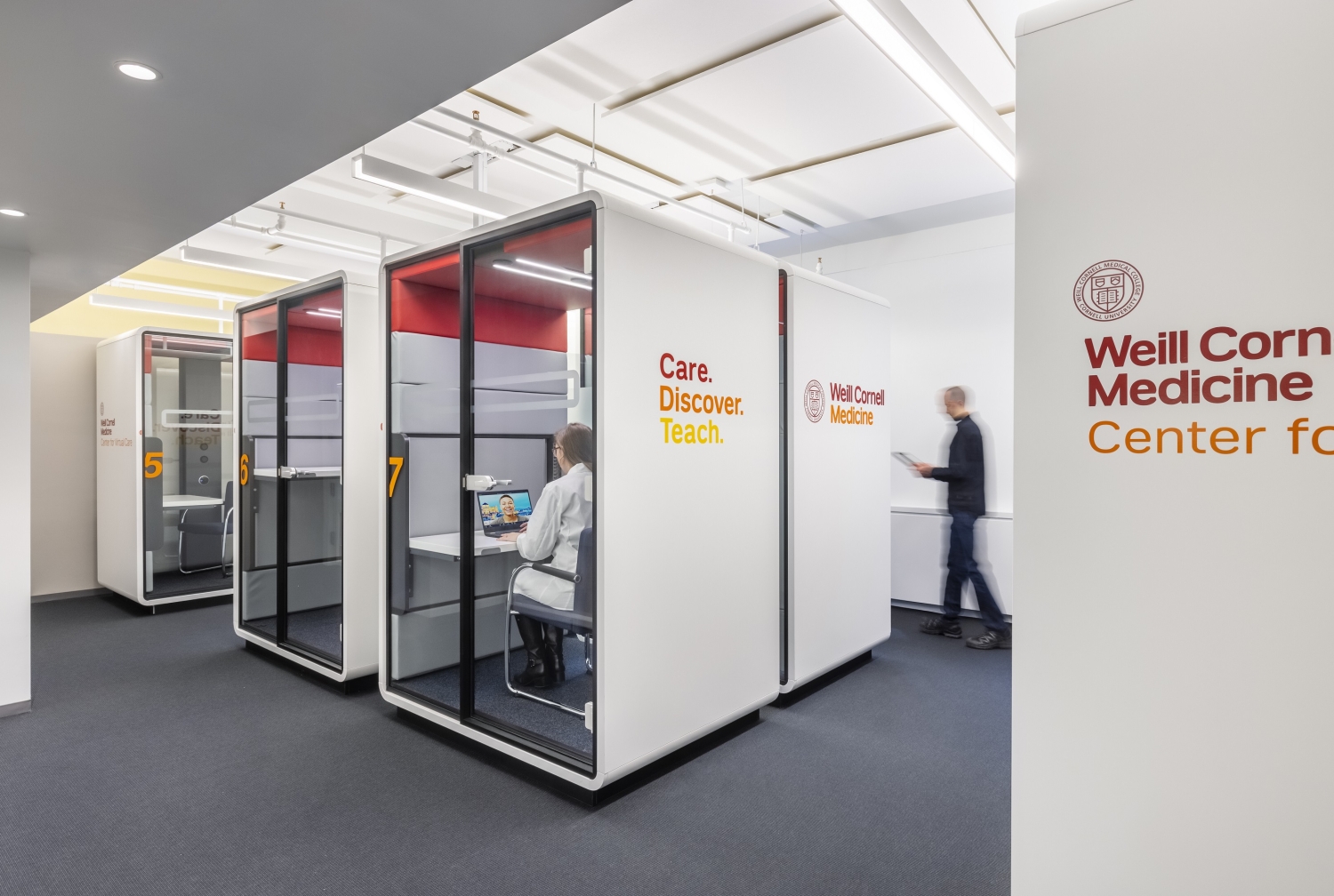Digital health and the tools for patients to virtually reach their healthcare providers have quickly become a mainstay of medical care during the pandemic. Weill Cornell Medicine’s Center for Virtual Care is positioned at the leading edge of this healthcare delivery transformation. Leveraging their years of experience with video visits, the center’s experts train providers how to best use it to give their patients comprehensive, compassionate care.
Since its formal launch in early 2020, the center has hosted 30 sessions with more than 500 healthcare providers across the continuum—physicians, residents, medical students, physician assistants and physician assistant students, nurses, care managers, and other practitioners—teaching them “web-side” manner, how to examine patients and make treatment-related decisions remotely, and other fundamentals through live courses and simulations. Trainings began in person, but quickly transitioned to remote learning last March with the emergence of COVID-19. The center’s latest offering is a two-week online course, developed in collaboration with eCornell, that provides strategies practitioners can use when meeting remotely with their patients.
“Our physicians have been delivering digital healthcare since 2016 and have seen first-hand the power of the virtual doctor’s office in reaching our patients, especially with the COVID-19 pandemic,” said Dr. Rahul Sharma, chairman of Weill Cornell Medicine’s Department of Emergency Medicine, which operates the center. “The Center for Virtual Care strives to train our healthcare colleagues on digital health best practices and drive national dialogue about the value of this new clinical medium in delivering the finest patient care.”
The new eCornell course, which features a curriculur in-line with the Association of American Medical College’s Telehealth Competencies, offers instruction on how to harness the digital health medium to effectively create a therapeutic patient-provider encounter. Students learn essentials including verbal and non-verbal communication strategies to convey empathy and compassion, how to overcome technical challenges, and how to conduct remote patient exams.
“As physicians, providing high-quality care is the bedrock of our work, regardless of whether that care happens in-person or on a screen,” said Dr. Peter Greenwald, director of telemedicine in the Department of Emergency Medicine and an assistant professor of clinical emergency medicine at Weill Cornell Medicine. “The work we are doing at the Center for Virtual Care is helping establish a new patient provider space that, like the office exam room, has its own set of rules, practices and tools of the trade. The material we teach at the center allows practitioners to become proficient in this new space in order to make their digital health care a practice of excellence.”
The digital medium offers patients the opportunity to connect with providers at a time and place that’s convenient for them. But telemedicine practice can create new communication barriers and may even expose providers and institutions to risk. The Center for Virtual Care tackles these issues to ensure that digital health offers its very best therapeutic benefits at the lowest medical-legal risk.
“The center’s goal is to empower physicians and provide them with the tools they need to become proficient in the digital space,” said Dr. Neel Naik, the director of simulation education for the Department of Emergency Medicine and an assistant professor of clinical emergency medicine at Weill Cornell Medicine. “The pandemic has accelerated a shift toward virtual patient encounters and has underscored just how important these skills are in fostering a positive healthcare experience.”

